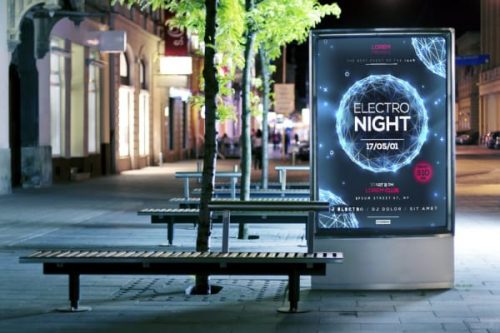
Just about everything is undergoing a digital transformation. From the growing green movement to reduce our impact on the environment, to the technological waves that we embrace and support, we are at a point where we need to remind ourselves of the importance of physicality.
Today’s digital world
Until recently, there were only physical books. We read stories page by page as we flipped them in our hands. We learned from textbooks we highlighted with bookmarks and notes, and we picked up newspapers and magazines on the way to work.
Today, technology has provided an alternative to the physical. Kindles are paperless books are all stored in a tablet. Textbooks have digital and e-book versions and newspapers have their own websites where they post digital versions of their printed stories.
Despite this technology, and contrary to some predictions, the physical counterparts are not dying out. Books, textbooks, newspapers, magazines; they are all still important to a lot of people who like the tactile aspect of reading.
Digitizing isn’t necessarily a matter of replacing, but rather, a matter of complementing. It is about catering to different audiences – those who prefer digital copies, and those who enjoy the physical ones.
Physical signage in a digital world
We should consider physical signage in the same way: looking at how it can complement digital signage, and not simply compete with it. It is tough in today’s digital world, and that’s why print vendors need to adapt to the times and be more innovative and efficient with their signage printing.
There are many areas where physical signage is needed. For example, the signage in your office or on your shop front acts as an extension of your online brand. You are providing your customers with the same experience and feel offline that they receive online and continuing – and building on – that brand-building experience. When executed well, physical signage can help bring your brand to life in the real world.
Physical signage is also great at attracting walk-in customers, especially for bricks and mortar stores. A beautiful, witty or well-designed sign can engage customers who were not even intending to step into your store in the first place – and who might not even have known that it existed. Attracting foot traffic is crucial for businesses such as restaurants, cafes, retail and clothing stores. The right signage could mean the difference of having an extra 20 walk-in customers on any given day.
It’s not just about signage at the front door. Once customers are in the store effective use of short-term signage can showcase promotions and deals. These can be effective for promotions of goods that require a quick turnaround or to push products at the point of sale. Options such as lightboxes, pillar or floor wraps are effective ways to show customers in your store what deals are available now.
Innovative and creative signage can create unique instore marketing and advertising opportunities. Large scale installations such as pillar wraps and floor wraps in shopping malls or train station instantly add a different feel to the setting – one that passersby will notice immediately. For pop-up stores, the right signage will set the store apart from the usual surrounds, marking it as unique. Vehicle wraps ensure your brand is always on display, even when you’re making deliveries along busy city streets. These same busy public areas can be brightened up with large lightbox installations.
While we are living in a digital world, there are still many varied and unique ways to utilize physical signage.
Creating the best physical signage
The easiest way to print your signs is to use Epson’s large format signage printers.
Epson’s S-series signage printers in combination with Ultrachrome GS3 inks deliver accurate color reproduction of even the most complex designs. vibrant colors, sharp contours and smooth gradations, with excellent light/wash fastness, and abrasion/perspiration resistance.
Epson’s professional printers combine high volume and high-speed production printing with quality print output, along with affordability. Short-run signage is now possible because of this technology that brings about lower cost and better quality.
With this, stores and businesses can promptly change and create new signage whenever it is needed, thus being more up-to-date and current, but still maintaining the physicality that we all know and love.

